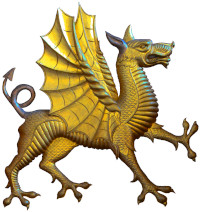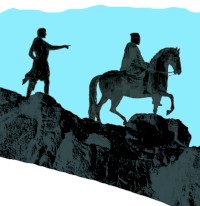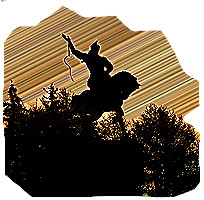Reading from pages 203-211 of Shadow & Claw
Hethor
“He-he-hethor am I, come to serve you, to scrape the mud from your cloak, whet the great sword, carry the basket with the eyes of your victims looking up at me, Master…”
So the young journeyman torturer, exiled in disgrace, becomes the death-dealing fetish of a lost soul, an executioner’s groupie, nicely illustrating the underside of slavery, the fact that in many slave societies free souls are bound to a system of exploitation made possible—indeed given life—by the desire of natural slaves to experience the freedom from agency, the passive joy of being bound to a master.
The penetrating and manipulative mind of Dr. Talos comments on the improbability of finding the perfect servant who serves for love of the work comprising his category of service, such as a ditcher who loves nature, a whore who is a nymphomaniac and so on, but comments that there is no such thing in nature, insinuating that there is something malevolent about Hethor. This brought to question, in the mind of Severian, the Doctor’s mesmerism of the giant and the beauty who served the Doctor slavishly—just as he discovers the burden of the master needfully served by an intrusive slave.
As the party approach the wall they discover that it’s soaring metallic heights are rivaled by the honeycombed expanse of the interior, that the edifice is a military city, occupied by countless minions of the Autarch, that the portals make the traveler feel like one among many mice and are so awesome that some who have never entered shrink from doing so and flee.
The narrative voice of the Autarch considering his crooked ascent to the throne, pauses in his composition, noting that his story had progressed from the gate of the City of the Dead as a boy and to the gate of man’s greatest living architecture as a young man, and takes leave of the reader.
Diction of note
-fricatrice, prostitute
-merychip, a riding animal
-deeses, religious artifact
The appendix on page 211 is a note from the author concerning his choice for using archaic terms to describe not yet existing creatures and things instead of making up terminology, which was the master stroke of this work, that imbuing the reader with the sense of the ancientness of Urth could not be accomplished with newly fabricated names, but would best be achieved by borrowing names taken from the ancient roots of the reader’s own language, plucking the echo chord of our own ascent.
Organa: The Malfunction of Tray Sorenson











